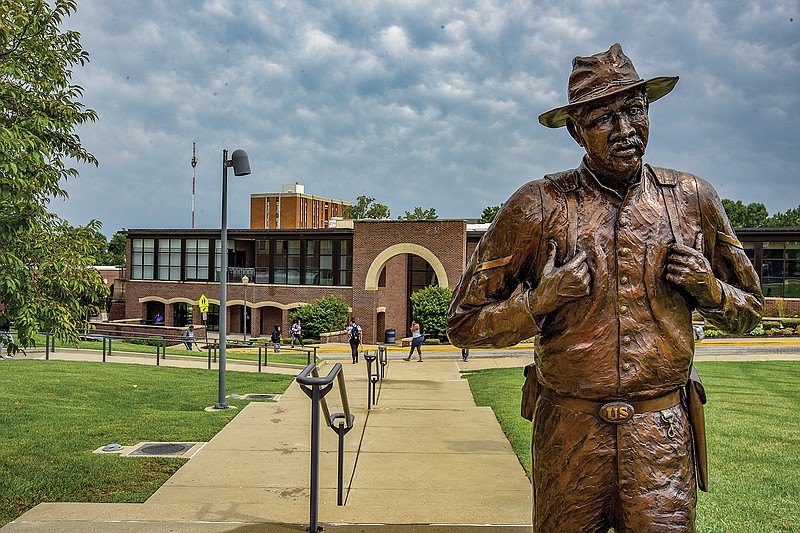The Lincoln University Board of Curators is looking into redeveloping a relationship with the 62nd and 65th Regiments Legacy Foundation, but this could cause issues with the university's accreditation.
Board of Curators President Victor Pasley said it's important to re-establish a relationship with the foundation because the foundation has $8 million-$9 million that was donated over the years to support LU students, he said during a board Executive Committee conference call last week.
Legacy Foundation President Hardy Dorsey said he believes some students aren't aware of the foundation because of its severed relationship with the university.
"We have been at odds with the university, and so, consequentially, we have not been able to get, I think, the support the university needs to give us," Dorsey said in an interview with the News Tribune.
Dorsey said the foundation looks forward to re-establishing a relationship with the Board of Curators.
"What we want to do is just to be able to get the assistance in ensuring that the students know that the 62nd and 65th Regiments Legacy Foundation is available, and we look forward to giving far more scholarships for the 21-22 academic school year," he said.
In December 2018, the university voided its memorandum of understanding with the then-named Lincoln University Foundation Inc. after university officials said they became dissatisfied with the foundation's fundraising performance and its level of autonomy.
In 2019, the foundation announced its name change to the 62nd & 65th, and the university announced it would accomplish its fundraising activities through its Office of Institutional Advancement and Alumni Relations.
LU and the foundation became involved in legal disputes stemming from the separation, with a lawsuit by each against the other in federal court over control of money, documents and use of the university's likeness.
The 62nd & 65th's lawsuit against LU was consolidated into the university's lawsuit against it in April 2020, upon the foundation's request. The combined case was dismissed in the U.S. District Court's Western District of Missouri after the court was notified of a settlement in the case.
The terms of the settlement include that the 62nd & 65th will "hold in trust and administer" 51 scholarship funds and 85 endowment funds.
Tiffany Nolan, LU's director of grants and sponsored research and chair of the Higher Learning Commission accreditation committee, told the Board of Curators' Executive Committee during its meeting Tuesday she has two concerns with LU re-establishing a relationship with the foundation, based on the Higher Learning Commission's accreditation criteria.
The Higher Learning Commission is LU's regional accrediting agency. Accreditation is required to receive federal funding. If the university is not accredited, it cannot receive federal funding, and students are not eligible to receive federal financial aid.
Since it would be a financial relationship, the Higher Learning Commission may need to approve the relationship, Nolan said.
"I think there are going to be some pretty significant questions asked as it relates to our accreditation and whether or not we meet the criteria," Nolan said during Tuesday's meeting.
The first concern is the role of the board in the day-to-day operations of the institution, Nolan said. Higher Learning Commission Criterion 2C states the board must delegate "day-to-day management of the institution to the institution's administration and expects the institution's faculty to oversee academic matters."
"Typically, when we would venture into an external relationship, it would have been vetted through the university and come to the board for approval," she said.
In this particular situation, it would be done backwards. The board needs approval from the Lincoln University president and the cabinet, Nolan said.
"From what I know and what I can see, if I were a peer reviewer, I would question, and I might say that we need to dive a little bit deeper into if this is not meeting that criterion," she said.
The other concern is a peer reviewer might question if the university's issues with the foundation still exist and why the board wants to re-affiliate.
"If we continue down this road and this affiliation is formally agreed upon, I do think we need to be prepared to answer questions related to why we severed the relationship in 2018 and if the circumstances have changed," Nolan said.
The Board of Curators' Executive Committee reviewed a summary of litigation during closed session of the meeting Tuesday. After the board reviews the old and new memorandum of understanding and receives the necessary approval, the Executive Committee plans to set up a meeting with the foundation's executive committee to review the documents and discuss the possibilities of re- establishing a relationship.

